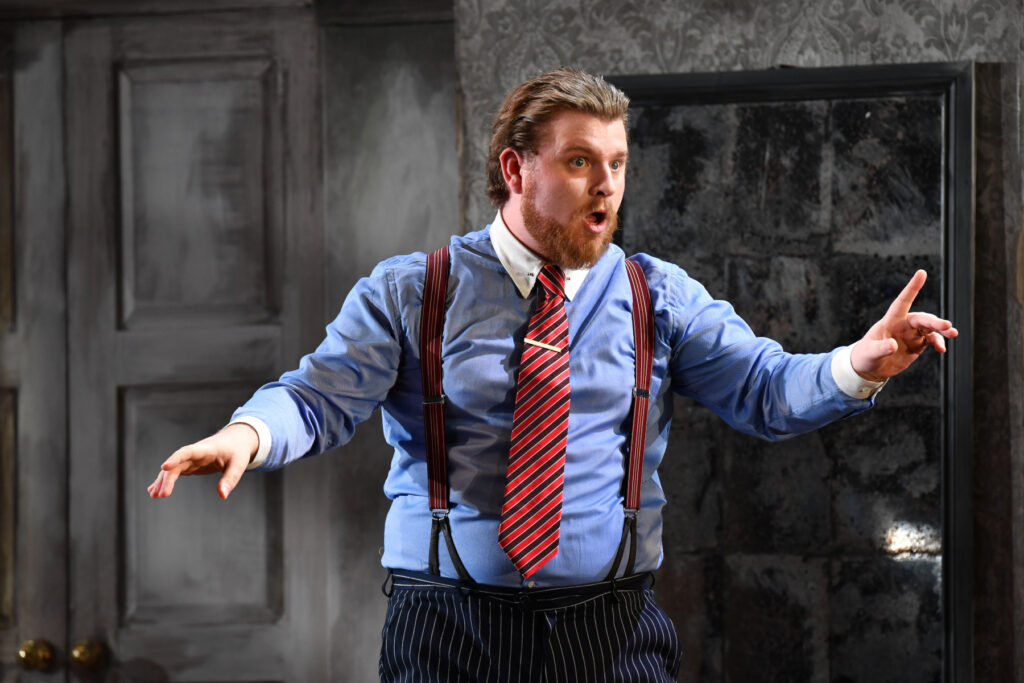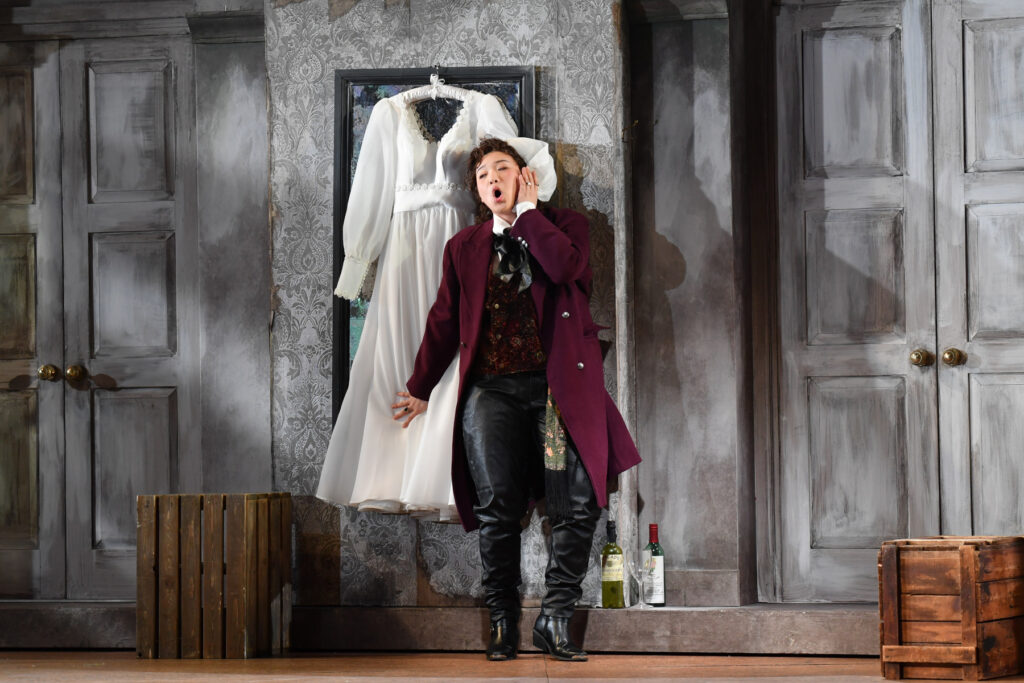The Royal College of Music last presented Le nozze di Figaro in 2018, in a masterly production by Sir Thomas Allen, a rare example of a director who has sung both Figaro and the Count. He kept the action firmly in the 18th century, but for this 2025 production the protean Jeremy Sams opted for, as he wrote, “a very vaguely 70s to 80s look”. This was suggested more in Alex Doidge-Green’s eclectic costumes than in his set, a mobile unit of architectural arches and doors that suggested a shabby country residence. The period was apt for an opera with an undercurrent of social upheaval: the first real stirrings of Spain’s post-Franco movida became manifest in 1980. Hispanic swagger was explicitly evident in the dance episodes (the production’s alternate casts were even named ‘Fandango’ and ‘Flamenco’) and occasionally in poses struck by the characters as the events of Beaumarchais’ ‘mad day’ unfolded.

This was, though, a production that rightly favoured a naturalistic approach – or opera-naturalistic, at least. Count Almaviva, in his chalk-stripe suit and Gordon Gekko red braces, was less a go-getter than the kind of chap who expects everything to come to him. Sam Hird, a Jette Parker artist at the Royal Opera from next season, exuded assurance in every aspect of his performance, including the technically tricky conclusion to his aria. As Figaro, Ross Fettes – his voice set a little lower and deployed with comparable stylishness and maturity, was in no way to be outdone. Charlotte Jane Kennedy, a poised, keen-eyed Susanna, sang with a silkiness that suggested a future Countess.

On this occasion the mistress of the house was Madeline Boreham, a Rosina who, though a game gal, still sought comfort in the wine bottle (a specific period reference to Johannes Schaaf’s 1987 Figaro at Covent Garden?) When in full flow, her tone, always judiciously measured, matched the crimson hue of her wedding outfit. Dressed in tribute to Boy George, Cecilia Yufan Zhang – a mezzo with a soprano glint in her timbre – resisted overdoing Cherubino’s teenage rumbustiousness. The unusual glamour of Alexandria Moon’s Marcellina extended to her sound, substantial and intriguingly smoky, while Gabriel Tufail Smith brought firm, concentrated power to his dapper Bartolo. Bella Marslen, a cheeky Barbarina, projected her lines with bell-like clarity, Marcus Swietlicki’s Basilio was as elegant as he was insidious, Edvard Adde injected dynamism into the lawyer Don Curzio, and James Emerson’s vocal refinement elevated the rough-and-ready Antonio. Michael Rosewell, the Royal College’s resident maestro, handled the score and the acutely responsive student orchestra with his customary flair for theatrical momentum.
Yehuda Shapiro
Le nozze di Figaro
Composer: Wolfgang Amadeus Mozart
Libretto: Lorenzo da Ponte
Cast and production staff:
Figaro – Ross Fettes; Susanna – Charlotte Jane Kennedy; Count Almaviva – Sam Hird; Countess Almaviva – Madeline Boreham; Cherubino – Cecilia Yufan Zhang; Barbarina – Bella Marslen; Marcellina – Alexandria Moon; Bartolo – Gabriel Tufail Smith; Basilio – Marcus Swietlicki; Don Curzio – Edvard Adde; Antonio – James Emerson
Director – Jeremy Sams; Movement Director – Scott Howland; Designer – Alex Doidge-Green; Lighting – Tim Mitchell; Conductor – Michael Rosewell
Britten Theatre, Royal College of Music, London, 17th March 2025
Top image: Madeline Boreham (Countess), Ross Fettes (Figaro) and Charlotte Jane Kennedy (Susanna)
Photos: © Royal College of Music